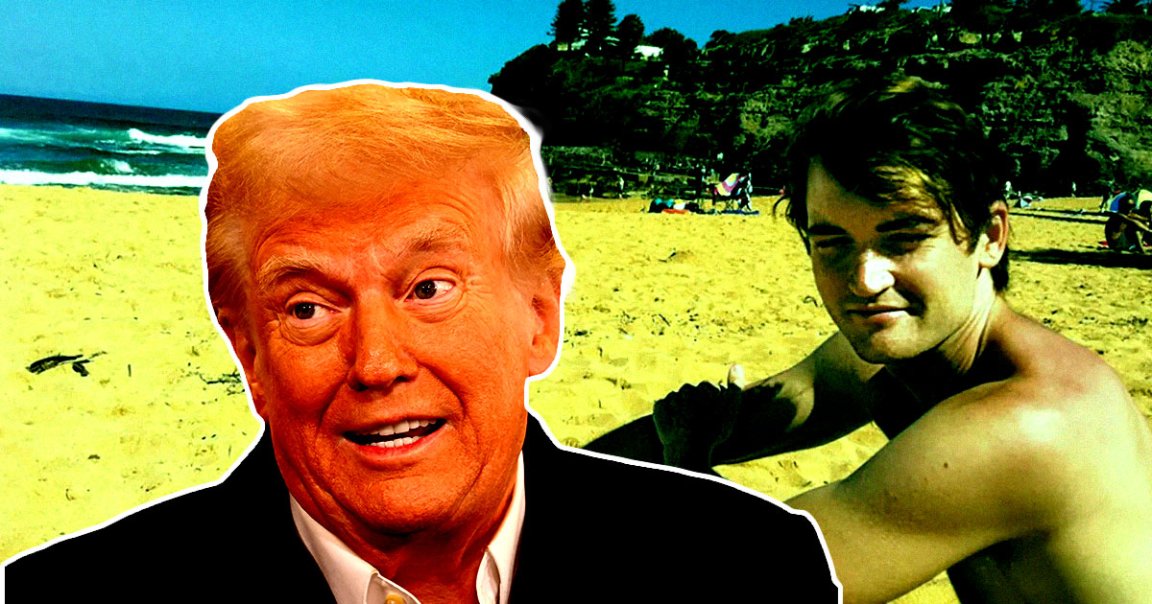
During his announcement in late 2022 that he would be once again running for president of the United States, now-reelected president Donald Trump issued an outrageous threat: that he’d seek to punish drug dealers with the death penalty.
“We’re going to be asking everyone who sells drugs, gets caught selling drugs, to receive the death penalty for their heinous acts,” Trump told an audience during his speech at his Mar-a-Lago estate at the time. “Because it’s the only way.”
Just over two years later, Trump appears to have completely reversed that position by unconditionally pardoning Ross “Dread Pirate Roberts” Ulbricht this week. Ulbricht ran Silk Road, the now infamous site that made history as the first dark web marketplace, offering a cornucopia of banned drugs in exchange for the then-nascent cryptocurrency Bitcoin.
Ulbricht was sentenced to life in federal person in 2015 after he was busted by the FBI — and after Silk Road had facilitated the sale of over $200 million in illegal drugs and other illicit goods.
“Make no mistake: Ulbricht was a drug dealer and criminal profiteer who exploited people’s addictions and contributed to the deaths of at least six young people,” Preet Bharara, then US Attorney for the Southern District of New York, said in a statement at the time.
During his 2015 sentencing, district judge Katherine Forrest described Ulbricht as “no better a person than any other drug dealer.”
Forrest had a point. Ulbricht didn’t just sell drugs; he disrupted the entire industry. He wasn’t your neighborhood dealer; he was the Uber of plugs, singlehandedly creating an entire new model that directly connected drug buyers with drug sellers — and taking a handsome cut in the process. In terms of long term impact, Ubricht probably had more of an impact on the global drug trade than Pablo Escobar.
It’s not that drug crimes actually deserve draconian punishments, but Trump’s pardon serves as a painstakingly obvious attempt to curry favor with the crypto industry — which he also once reviled, before gaining its financial support — as well as contradicting his earlier promise to literally punish drug dealers with death.
The pardon highlights Trump’s fragile moral compass and well-documented willingness to abandon his stance on a given matter when presented with an opportunity to cash in.
Ulbricht’s life sentence has long been the subject of libertarian outrage, as Al Jazeera reports, with the crypto community arguing he was unfairly prosecuted as an example to others.
“I was doing life without parole, and I was locked up for more than 11 years but he let me out,” he said in a video message posted on X-formerly-Twitter. “I’m a free man now. So let it be known that Donald Trump is a man of his word.”
Trump’s decision to pardon him, however, had plenty of critics.
“Pardoning drug trafficking kingpins is a slap in the face to the families who’ve lost loved ones to his crimes,” Democratic senator Catherine Cortez Masto wrote in a tweet. “Donald Trump should have to explain to them how any of this makes America safer. It’s an outrage.”
Meanwhile, Trump signed an executive order earlier this week, looking to reinstate the death penalty. Whether the Supreme Court will green-light the decision remains to be seen.
During a campaign speech in September, Trump reiterated his desire to expand the death penalty to those who were convicted of drug trafficking.
“These are terrible, terrible, horrible people who are responsible for death, carnage and crime all over the country,” he said at the time. “We’re going to be asking everyone who sells drugs, gets caught, to receive the death penalty for their heinous acts.”
Yet somehow Ulbricht, who created an entire marketplace and new business model for the sale of drugs, has been set free.
More on Silk Road: Silk Road Mastermind Ross Ulbricht Seen Leaving Prison Holding a Small Plant